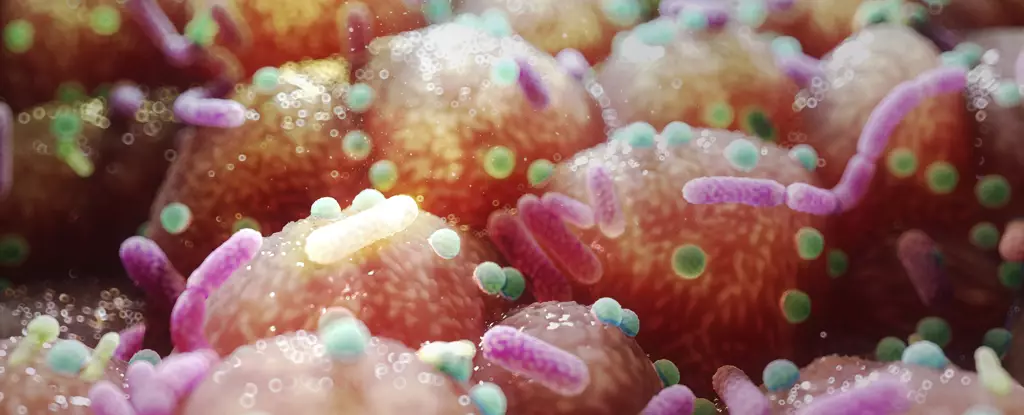Researchers at Vanderbilt University have uncovered a fascinating link between gut microbes and weight gain, shedding light on the potential impact of early exposure to antibiotics on childhood obesity. By feeding young mice a high or low fat diet, with or without antibiotics, the team observed that mice on a high fat diet and exposed to antibiotics gained weight. However, mice treated with penicillin antibiotics alone did not experience weight gain. This indicates that the combination of a high fat diet and antibiotics contributes to weight gain.
A key finding from the study was a decrease in Lactobacillus bacteria in the weight-gaining mice exposed to antibiotics. Previous research has shown that disturbances in the gut microbiome can lead to a decrease in a regulatory protein called PPAR-γ2, which is involved in fat processing in the intestines. The team observed a similar decrease in mouse cells that line their intestines, thereby supporting the link between gut bacteria, fat processing, and weight gain.
The researchers discovered that the lack of Lactobacillus bacteria and its metabolite, phenyllactic acid, alters the way intestinal epithelial cells package fat. Normally, phenyllactic acid signals the epithelial cells not to package and secrete excessive fat. However, without this signal from the microbiota, the cells begin to behave differently, resulting in increased fat circulation and weight gain. By introducing phenyllactic acid to young mice, the researchers were able to protect them from the metabolic dysfunction caused by a high fat diet and antibiotics.
While the study was conducted on mice, the researchers believe that similar mechanisms may be at play in humans. In fact, phenyllactic acid levels have been found in baby poop, with variations based on the abundance of Bifidobacterium. These findings suggest that maintaining a healthy balance of gut bacteria, possibly with the help of probiotics containing Lactobacillus, could be beneficial in preventing weight gain and obesity.
The research team’s findings suggest that maintaining a healthy, low fat diet and incorporating probiotics into our daily routine may mitigate the impact of antibiotics on the gut microbiome, especially in young individuals. Cultures that already encourage the consumption of fermented foods like kimchi and kombucha, which naturally contain Lactobacillus, may unknowingly provide a protective effect against weight gain and obesity. By understanding the role of gut microbes in weight regulation, we can explore new avenues for interventions to combat the global rise in obesity.
The study from Vanderbilt University highlights the crucial role of gut microbes and their metabolites in weight regulation. By identifying the bacterial compound phenyllactic acid, the researchers demonstrated how it blocks fat secretion in intestinal epithelial cells. This breakthrough has significant implications for addressing childhood obesity and suggests that maintaining a healthy balance of gut bacteria, alongside a low fat diet and probiotic consumption, may be effective strategies for weight management. As research continues in this field, further insights into the intricate relationship between gut microbes and weight gain are expected to emerge, opening up new possibilities for interventions and treatments in the battle against obesity.



Leave a Reply